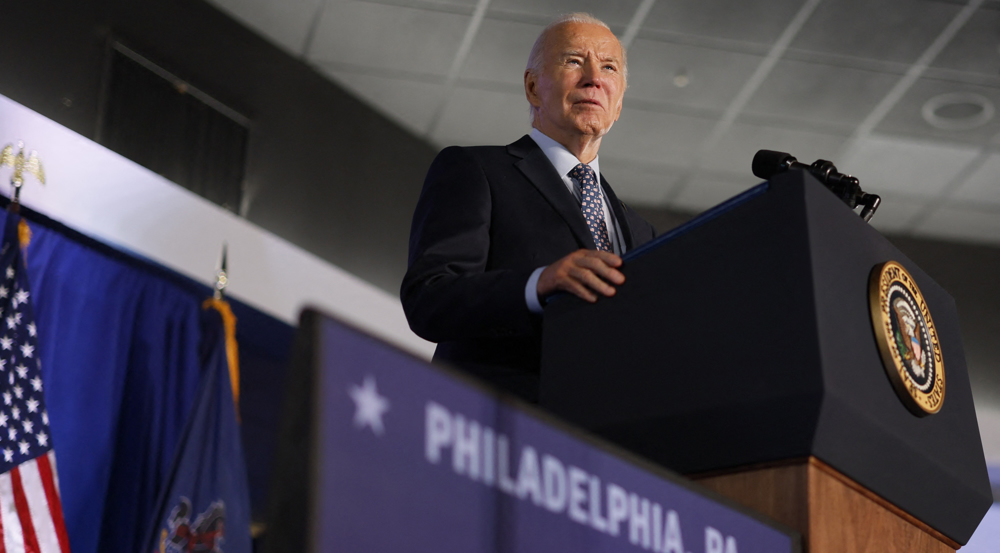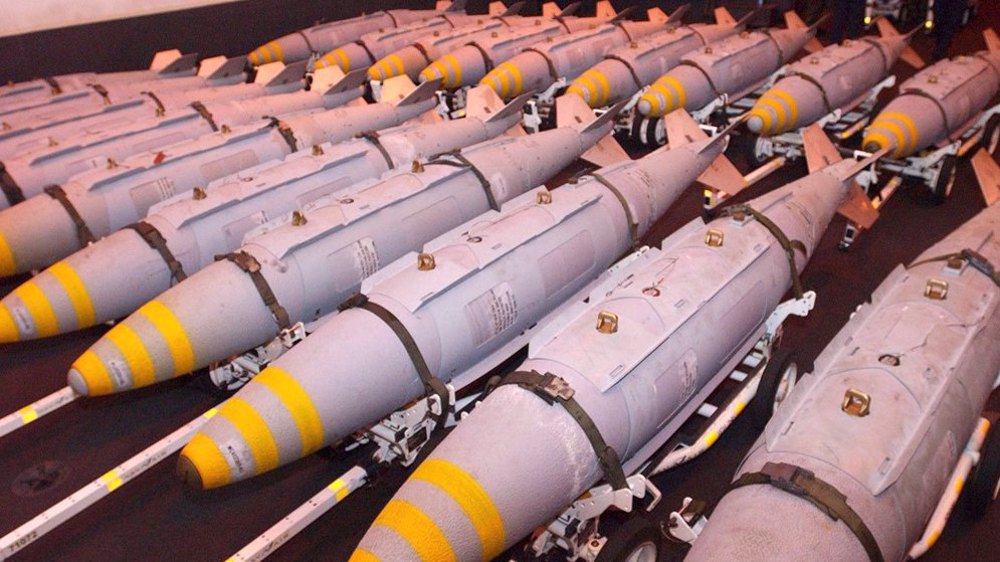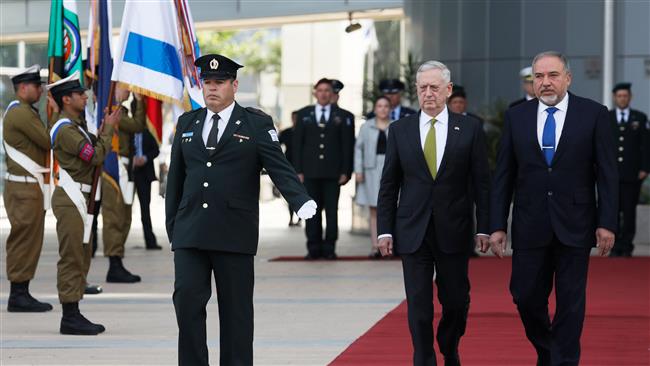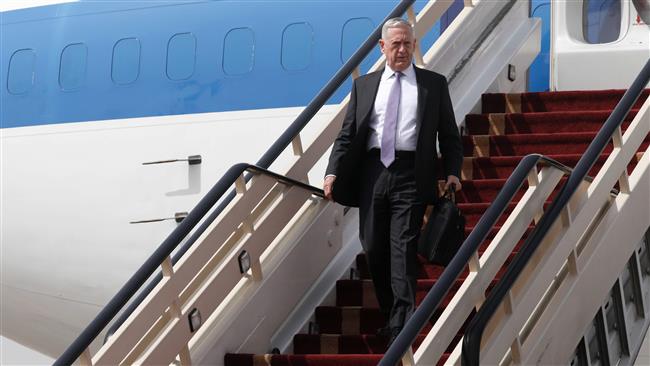Russia, China challenging US military dominance: Mattis
US Secretary of Defense James Mattis has warned that Russia and China are challenging America’s military dominance with technological advances, “placing the international order under assault."
Mattis made the statement to the US House of Representatives Armed Services Committee on Monday as part of his testimony at a hearing on the Defense Department's 2018 budget request.
"A return to great power competition, marked by a resurgent and more aggressive Russian Federation and a rising, more confident, and assertive China, places the international order under assault," the Pentagon chief said.
He said the US military dominance in sea, land and air was being threatened with Russian and Chinese technological advances.
"Our command of the seas is threatened by long-range, land-based guided munitions battle networks designed to attack our ships at increasingly longer ranges. Our undersea superiority, unquestioned since the end of the Cold War, and a key competitive advantage, is challenged by both Russia and China," he stated.
Mattis also said there was no indication that Russian President Vladimir Putin wanted a positive relationship with the United States, saying it had chosen to be a “strategic competitor.”
"At this time ... I do not see any indication that Mr. Putin would want a positive relationship with us. That is not to say we can't get there as we look for common ground," he said.
Read More:
- 'US losing military edge to Russia, China'
- Trump won't waive US sanctions on Russia
- US evaluating nuclear attack on Russia, China
Mattis attended the wide-ranging hearing with the US Joint Chiefs of Staff Joseph Dunford, who said the United States had an adversarial relationship with Russia.
Washington and Moscow have a number of diverging interests, including in Syria and Ukraine.
Mattis also blamed Congress for approving short-term spending measures that provide too little money for what he called a shockingly poor state of combat readiness as the United States faces fierce rivals, including what he described as an "urgent and dangerous threat" from North Korea.
US senators on Monday reached a wide-ranging bipartisan agreement to impose new sanctions against Russia and limit President Donald Trump’s powers to lift the bans without congressional consent.

The financial penalties target what the lawmakers call "malicious cyber activity" by Russia, referring to the country's alleged cyber attacks against the Democratic Party in last year's presidential election.
They also take aim at individuals supplying weapons to Syrian President Bashar al-Assad's government. The bans can also be applied to individuals tied to Russia's intelligence and defense sectors.
The measures are part of an amendment to a broader anti-Iran bill that proposes a range of non-nuclear sanctions against the Islamic Republic over its defensive missile program.
Latest ballots polls show Harris, Trump tied as voting continues
UNRWA warns of humanitarian collapse in Gaza
'Hello my enemies': Lebanese journalist on Israeli threats and his resolve to continue
Outrage in France as MP proposes bill to ban criticism of Israel
VIDEO | The strategy of Hezbollah in war
Israeli military withdraws several brigades from southern Lebanon: Report
48-year-old Palestinian man serving 48 life terms completes 22 years in Israeli jails
From MKO to Tondar, how Germany became safe haven for anti-Iran terror groups
















 This makes it easy to access the Press TV website
This makes it easy to access the Press TV website